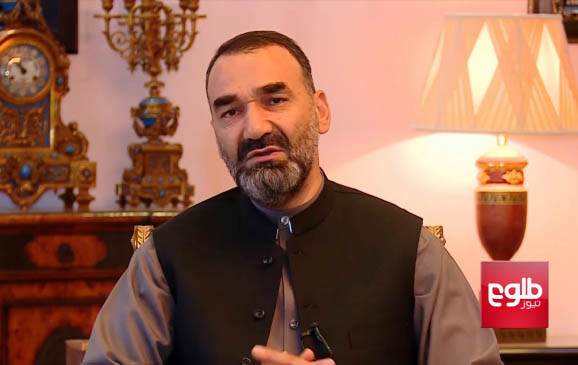MAZAR-E-SHARIF - Afghanistan governor returned to his office Saturday and chaired an official meeting in violation of a presidential decree that ousted him from his post earlier this month.
The escalating political uncertainty comes as the United States and its allies step up military efforts in support of Afghan forces as they try to counter the Taliban insurgency and the Islamic State group plots fresh deadly suicide bombings in the war-torn country.
Ghani’s office announced two weeks ago that the president had accepted Noor’s resignation and named a replacement. But the ousted governor swiftly rejected the move, saying he had submitted his resignation months back and linked it to acceptance of a list of demands.
While chairing Saturday’s meeting of government officials at the governor’s office in Mazar-i-Sharif, the provincial capital, the powerful politician from the ethnic Tajik minority community again defended his position.
Noor insisted that nominating his successor and appointment to certain provincial posts in Balkh were among his demands. He went on to assert he would not quit until his Jamiat-i-Islami party and its allies negotiate a resolution with the Ghani camp in the coalition government.
“And if an agreement is not reached I will remain as governor of Balkh for as long as the National Unity Government is in power,” Noor told the meeting. His political party has also urged the president to review his decision and vowed to use “all options” in support of Noor.
The ousted governor claimed he has transferred “some authority” to his deputy to ensure smooth functioning of the provincial government but vowed “I will come every day” to the
The United States brokered a political deal between Ghani and his election rival Abdullah Abdullah after the 2014 presidential election ended in a deadlock that had brought Afghanistan to the brink of ethnic-driven chaos.
The deal made ethnic Pashtun Ghani president and created a new post, similar to prime minister, for Abdullah, a central leader of Noor’s party, which represents mostly Afghan Tajiks.
But the political standoff has apparently refueled the ethnic-based divisions, worrying Afghanistan’s Western partners.
Most secure Afghan province
Balkh has been the most secure of all 34 Afghan provinces under his leadership, claimed Noor, while defending his long tenure. Using the Arabic acronym for Islamic State, he tried to give credence to allegations officials in Ghani’s camp have links to the terrorist group.
“They want to bring Daesh here. I will never allow Daesh to come here, I have suppressed Daesh and will continue to suppress them,” Noor said in a speech Afghan television stations broadcast live.
The presidential office has repeatedly and vehemently denied the allegations as politically motivated.
The Afghan parliament has also been divided over the governor’s dismissal, with some fearing the deepening political strife is helping insurgents and IS terrorists to further their extremist agendas in Afghanistan.
In a recent speech, Noor also accused Abdullah of plotting his removal and condemned him as a “snake up our own sleeve”, charges the Afghan chief executive has rejected.
Analysts see the deepening crisis, stemming from traditional tensions between Tajiks and majority Pashtuns, as detrimental to political and security gains Afghanistan has achieved with the support of international community over the past 16 years.
The political standoff is also undermining efforts to organize parliamentary elections, officially scheduled for next year, and the 2019 presidential poll, amid criticism the Afghan government has not taken enough steps to introduce key electoral reforms to ensure there is no repeat of the crisis of the 2014 presidential election.
Noor supported Abdullah during the presidential election campaign but has since criticized him for not pressing Ghani to deliver on his commitments under the U.S.-brokered deal and give Jamiat-i-Islami its due share in the coalition government. Other party officials have also made similar complaints against Abdullah.
On Thursday, an IS suicide bomber struck a big gathering of members of the Afghan Shi’ite Muslim community in Kabul, killing more than 41 people and wounding around 100 more.
This was the seventh suicide attack IS carried out in the city in just over two months, underscoring growing strength of the terrorist group in the Afghan capital. (VoA)
Home » Afghanistan » Ousted Afghan Governor Returns to Office in Defiance of Presidential Orders
Ousted Afghan Governor Returns to Office in Defiance of Presidential Orders

